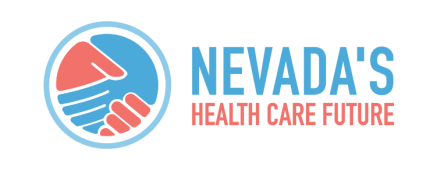Nevada Health Care Leaders Express Concern Over Costs And Consequences Of Proposed State Government Option
CARSON CITY, Nev. – As the Nevada Senate Committee on Health and Human Services met this week to discuss SB 420 – which would create a new state government-controlled health insurance system known as the state government option – voices throughout Nevada, including respected health care leaders, testified to express their serious concerns about the unaffordable costs and other potential consequences, including its potential to reduce Nevadans’ access to quality health care and worsen Nevada’s physician shortage.
Particularly with the bill now being amended so that the state government option does not begin operations until 2026, lawmakers should slow down and take the time to fully study this issue, rather than rushing to pass this complicated and costly proposal in the final weeks of the legislative session.
Jim Wadhams, Nevada Hospital Association:
Using a Medicare or a Medicaid system as a basis mandates that the cost system will be less than the cost to prepare and deliver those health care services. That creates a problem when cost exceeds the revenues, then adjustments will have to be made … The ultimate problem, I think, is that as we find insurance for more people, we have got to be careful that we don’t decrease the access. The concern is that by mandating that certain providers participate, we may frankly lose those certain providers from those other elements of care.
Tom Clark, Nevada Association of Health Plans:
The most important concern we have is cost: cost on implementation, cost in creating, cost on managing this new public option. The second biggest issue that we have is access to care. If you set the rate and you compress a portion of the market, the remaining areas in the system expand to cover and subsidize the costs of the compression. We contemplate that under this legislation, there will be a cost shift where you may see, under the public option, the set price, but those folks that are in those other elements of insurance will see an increase in the cost of theirs.
Jaron Hildebrand, Nevada State Medical Association:
We oppose the effort to require physicians’ participation in a public option by tying it to the participation of other state-based programs. This mandatory participation provision overlooks the complexities of running a physician practice, the balance involved in determining the capacity and the ability of a practice to serve a patient mix. There are many reasons as to why a practice may not participate with the plan – burdensome administrative policies, saturation of practice resources, physician time, engagement, and alternative payment models … Simply, Medicare rates have not covered costs of providing care in the commercial market. In fact, according to data from the Medicare Trustees and Medicare Physicians, pay has barely increased in nearly two decades … At the same time, costs of running a medical practice have increased over 37 percent between 2001 and 2020.
Dr. Thomas Christensen, MD, Nevada Orthopaedic Society:
In seeking to increase access to physicians in Nevada, we believe SB 420 will actually have an opposite effect by the mechanism of forced physician participation. Rather than offering incentives for participation, forced participation will make it harder for physician recruitment … Nevada has continually struggled with access to health care. Mandating and forcing participation into a public option will only exacerbate the issue for physician participation and for physician recruitment.
Michael Hillerby, Renown Health/Hometown Health:
We know that when the number of patients increase in Medicaid, Medicare and other programs that reimburse below costs, or for those who are uninsured, the cost burden shifts to providers and private health insurance patients. That impacts the number of providers willing to enroll in these programs and see new patients … Our delivery system is fragile, and sensitive to even small changes in the payer mix, and the same is true for the private insurance market for businesses and individuals. We cannot implement a new public option before we’ve studied and addressed the risks of losing providers in our current system or making Nevada a less attractive place to practice medicine.
Susan Fisher, Nevada State Society of Anesthesiologists:
Nationwide, we had over 10 percent of anesthesiologists leave the medical industry. Because of COVID, stress, they either took early retirements, we had a lot of deaths and sicknesses, and we’re losing providers. Our anesthesiologists here in Nevada, our big provider groups work very hard to try to recruit more anesthesiologists into the state. We’re not afraid of competition. We cannot get more anesthesiologists to come here because of the very low Medicaid rates.
Connor Cain, HCA, Sunrise Hospital and Medical Center, Southern Hills Hospital, Mountain View Hospital:
We worry that the current public option proposal will not work for Nevada’s unique health care environment and will have negative consequences for all, for both patients and providers.
As the federal government rolls out “the biggest expansion of federal help for health insurance since the Obama-era Affordable Care Act” and Nevada’s Silver State Health Insurance Exchange increases subsidies to help make coverage more affordable, a new analysis by the Brookings Institution warns elected leaders in Carson City to take “caution against making lasting changes” to the state’s health care policies “until matters are clearer.”
Meanwhile, a newly released statewide poll conducted by Locust Street Group on behalf of Nevada’s Health Care Future finds that the majority of Nevada voters overwhelmingly support efforts to build on and improve what’s working in health care, rather than start over by creating a state government-controlled health insurance system like the state government option.
- To learn more about Nevada’s Health Care Future, CLICK HERE.

